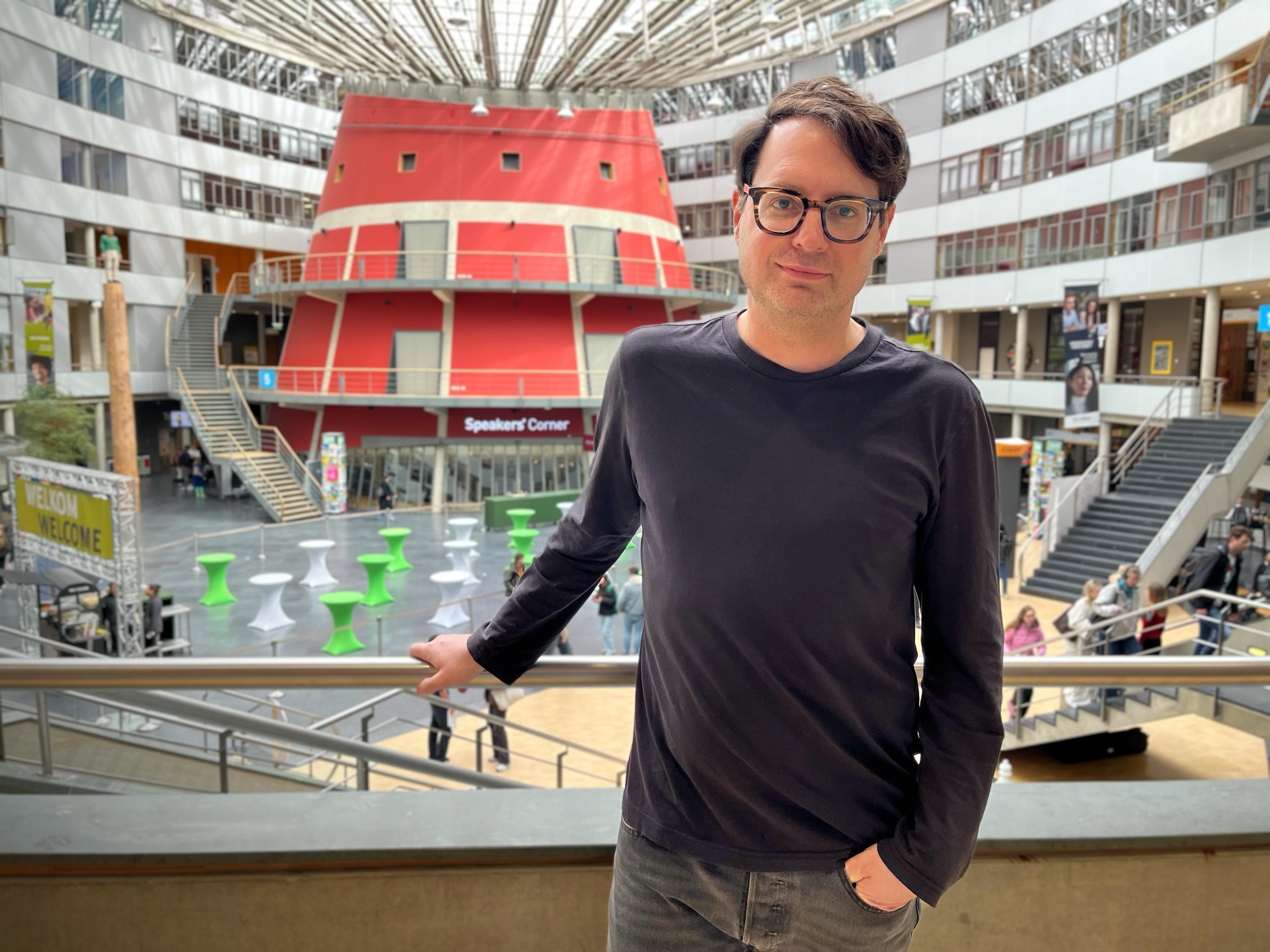Student Researcher Joshua develops Media Literacy Toolkit
14 April 2025
Student researcher Joshua Levine created a toolkit to help students and teachers spot fake news and handle misinformation. His goal: make media literacy a standard part of education.

Fake news and disinformation are terms we frequently hear when discussing misleading information. But how well are students able to recognize and filter out such misinformation? Student researcher Joshua Levine explored this topic in his study Everybody’s an Authority: Fake News in THUAS.
The study on students and fake news
Joshua Levine, a student researcher from the Student-led Research Unit, surveyed 77 students from various programs at The Hague University of Applied Sciences (THUAS) about their experiences with fake news. He aimed to understand how students encounter misinformation, how they deal with it, and what resources they need to be better equipped against misleading information.
I expected Gen Z to have had more media literacy training, but that turned out not to be the case
His key conclusion? No student is unaffected by fake news, and many do their best to distinguish fact from fiction with limited resources. While some students have received education on media literacy, it is far from universal. “That really surprised me,” says Joshua, who is in his forties himself. “I expected Gen Z to have had more media literacy training, but that was not always the case.”
Awareness exists, but knowledge is lacking
According to Joshua, students are aware of the existence of fake news, but they often lack the knowledge of how to counter it. While many organizations and resources exist to promote media literacy, he emphasizes the importance of actively seeking out reliable information.
In Joshua’s ideal world, media literacy would be an integral part of every curriculum. “It is so important that it belongs in almost every study program,” he says. “But I have tried to keep my recommendations feasible and practical.”
The toolkit: A practical guide to Media Literacy
One of the concrete outcomes of his research is the toolkit Joshua developed for students and lecturers. This toolkit contains articles, videos, infographics, and quizzes on media literacy. “The toolkit provides both an accessible introduction to the topic and in-depth information for those who want to dive deeper,” he explains. His goal? To make existing knowledge on fake news more accessible and to help students and lecturers engage with media more critically.
If you are interested in the toolkit, you can contact Joshua Levine at [email protected].
A Student-Led Research Project
Joshua looks back on his research within the Student-led Research Unit with pride. “It was a fantastic experience. My supervisor, Dr. Tamara Takács, and my fellow students greatly supported me, from refining the idea to distributing the questionnaire and editing the report.” His background as a journalist helped him approach the research from multiple perspectives. “I understand how media work, both from the creator’s and the consumer’s side. That gave me a broader view of the subject.”
Future plans
Joshua hopes his research will gain attention not only within THUAS but also beyond. “This issue affects not just our university but society as a whole. Fake news threatens democratic values and our individual well-being. I want to continue working on this topic, both within and outside THUAS.”